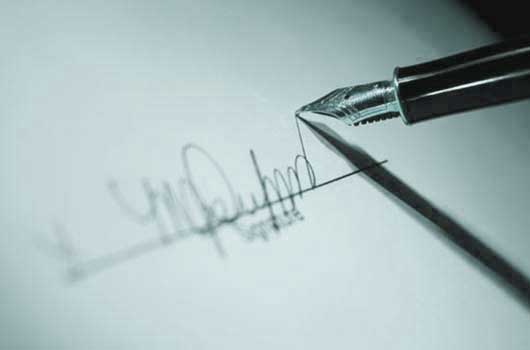Conveyancing process - step by Step guide
Conveyancing is the process of transferring the home ownership from you to the seller legally. It starts when an offer is made and finishes when the keys of the house are handed over to the buyer. If you fully understand this process, it will help prevent any surprises for you.
Below you can learn more about the conveyancing procedures, costs and fees charged by property solicitors in London.
By following the links at the bottom of the page you can read useful tips and advice how to find cheap conveyancing solicitors and choose the best of them. You can also see how the conveyancing fees are calculated and how much you can negotiate the costs.
Who takes care of the conveyancing?
If you are in London a local property solicitor or conveyancer will usually be the ones to handle the conveyancing process.
Before the exchanging of contracts
- Get with an estate agent to negotiate and accept an offer.
- Have the best local solicitor or conveyancer in London to start the conveyancing process
- To prevent delays, it's a good idea to choose who you want to take care of the conveyancing around the same time you select an estate agent. Remember to only ask them to start their work after you have an offer that is formal.
- Complete the detailed questionnaires dealing with the property and what you are including with the sale. You will receive the questionnaires from the person who is handling your conveyancing.

- The TA 6 is a general questionnaire that includes information like boundaries, complains and disputes, any known developments, utilities, contact details and council tax.
- If you don't own the freehold, you should provide more information on either the common hold TA 9 or the leasehold TA 7.
- The TA 10 holds the details of what you are including with the property you are selling.
- TA 13 is a bit more technical, but also includes the finalization details which include the arrangements to hand over the keys, completion arrangements, and also ensure that the house is free of all mortgages and liability claims.
- You must fill out the forms you have received from your recommended conveyancing solicitor London to the best of your knowledge and be truthful about it as well, because if you fail to do so, you can be sued for compensation. Or if the buyers find out before the exchange of contracts, it is possible they might pull out.
- The top property lawyers in London use those forms to draw up a draft contract. The draft is then sent to the buyer for approval or changes if needed.
- If you are not sure of anything and have questions do not hesitate to ask. It is the responsibility of London conveyancing solicitors to explain the process in every detail
- Negotiating the draft of the conveyancing contract. Things you should include:
- The date of completion, which is usually 7-2 days after the contracts are exchanged.
- What will be included in the sale
- How much they will pay for other fixtures and fittings they ask to be included
- The buyer usually has a survey conducted on your property. If anything major comes up, you may need to negotiate who will take care of the fixes or even negotiate the price instead.
- You must plan to pay your mortgage off by requesting a redemption figure from the mortgage broker company.
Contract exchanging

- You and the buyer will have already agreed on a time and date to exchange the conveyancing contracts. At that time the property solicitor or lawyer dealing with the conveyancing will exchange the contracts for you.
- The exchange is usually done by both property conveyancers or solicitors to make sure the contracts are identical, and then send them to each other in the post.
- If you or the buyers are in a chain, the top, best, recommended online property solicitors or conveyancers London will do the same thing, but only if everyone else in the chain are satisfied. If one person delays, then everyone in the chain is held up.
- Once the contracts are exchanged, you will be in a legally binding contract to sell your property.
- If the buyer pulls out, you will possibly keep their deposit and have the option to sue them.
- If you pull out, they get their deposit back and can also sue you.
- You are not able to accept another offer, even if it is higher.
Between the exchange and completion
- After the exchange is done, you should receive the buyer's immediately. The deposit is usually ten percent of the property price.
- You technically own the property until the sale is completed, so there is no need for removals until then. To make it easier and less stressful though, it is best to plan ahead and move out at least a few days before maybe sooner if possible.
- You should take a look around the property and make sure everything that is included in the agreement is accounted for before the completion.
Completion day
- This is the day you hand the keys over to the new owners. Usually your property have to be vacated before this happening. To plan your relocation well please see our moving house checklist. If you have an estate agent, the buyer will usually receive the keys from your agent. Leave any spare keys that you have made in the property for the new owners.
- You or your London conveyancing solicitors will receive the outstanding balance of the sale price.
- You or the property conveyancer will also hand over the legal documents stating they are the new owners of the property.
- Any outstanding mortgages can be paid off from the money gained from the sale. The conveyancer will usually take care of that.
Afterwards
- You will now have to pay the solicitor or the conveyancer and the estate agent you hired.
- Find out what are conveyancing fees in 2015.


